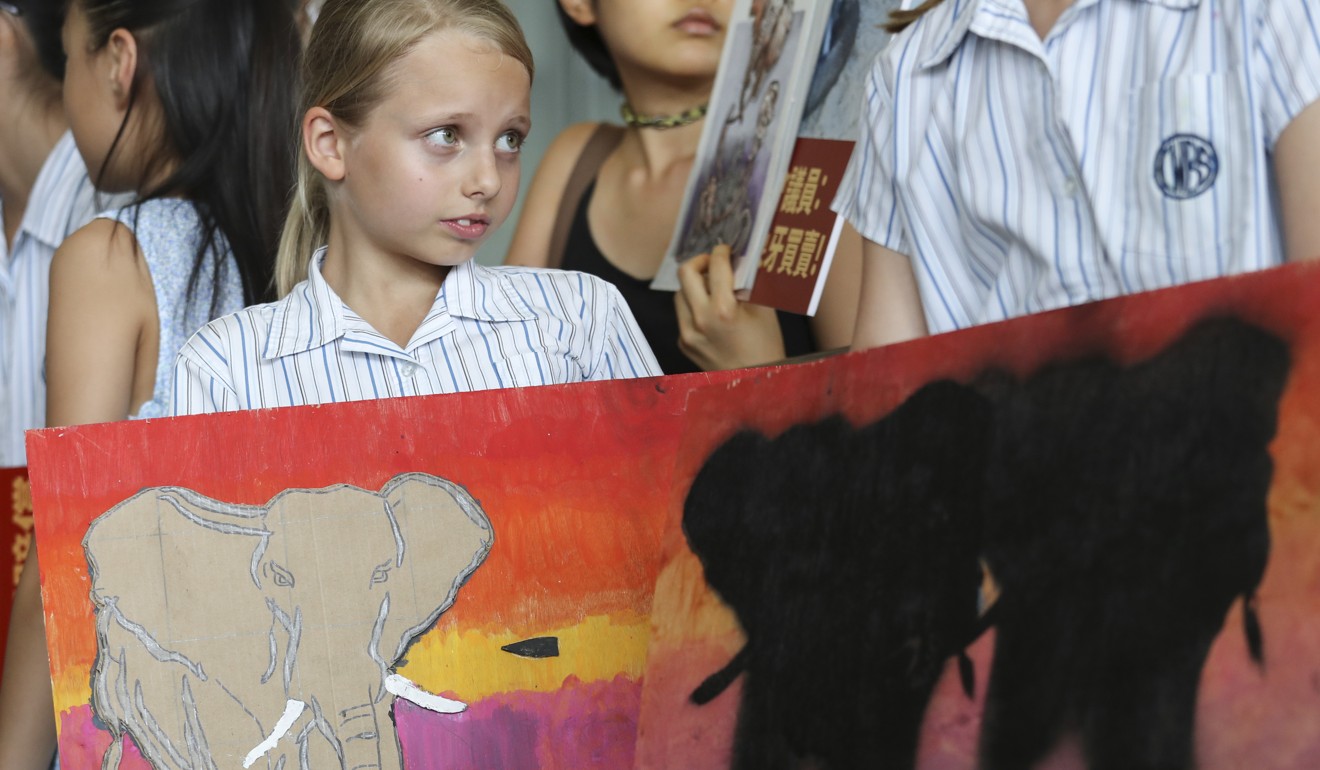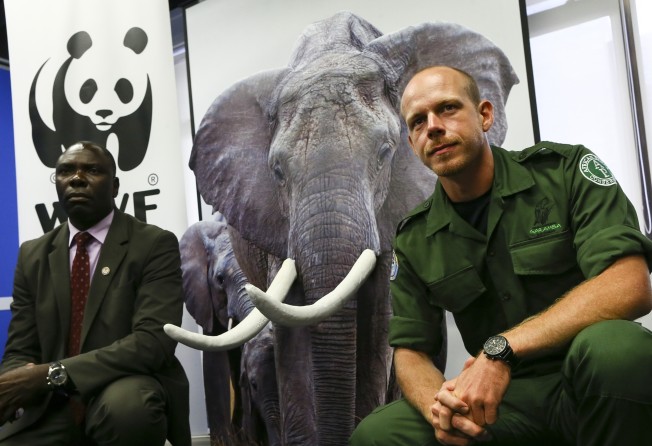
Ivory buyers will ‘wipe out elephants in 10 years’ says wildlife expert, pointing blame at Chinese traders
Testimony at legislature comes ahead of bill to ban import, re-export of ivory

A former wildlife crime investigator from Africa has pointed to Chinese individuals as being the major brokers currently active in Zambia’s illegal ivory trade, calling on the Hong Kong government to ban the trade as soon as possible.
Josias Mungabwa’s appeal comes as traders are demanding compensation of HK$2 billion over the move to ban the selling of imported ivory products by 2021. But a government source said the city’s Environment Bureau would not grant such compensation as doing so would set a bad precedent.
On June 14, Hong Kong lawmakers are slated to formally present for consideration the Protection of Endangered Species of Animals and Plants (Amendment) Bill.
The amended bill would ultimately phase out local ivory businesses by 2021, with steps to ban for commercial purposes the trade and possession of all elephant hunting trophies and ivory carvings. It would also nullify all possession licenses.
Mungabwa, a Zambian wildlife crime specialist with almost three decades of experience, and Erik Mararv, a leading ranger of the Garamba National Park, testified on Tuesday before the Legislative Council’s environmental affairs panel in the run-up to the vote.
Before the hearing, Mungabwa told the Post that in the largest case to his knowledge, 15 tonnes of ivory were shipped out of Zambia in 2015 under the control of a Chinese broker who was handling the transaction remotely. Two similar cases involved four tonnes and eight tonnes of tusks, respectively.
“Chinese traders form the largest group (of illegal ivory traders in Zambia), followed by the Congolese,” he said.

The cases remained under investigation in Zambia, and no Chinese national has been arrested.
By comparison, the amount of 15 tonnes in the first case was about half of the 33 tonnes of illegal ivory seized in Hong Kong between 2000 and 2013.
Mungabwa added that syndicates in Zambia supplied poachers with funds and weapons, including AK-47s. They also bribed officials on transport routes to smuggle ivory to Asian markets.
The country has seen between five and 10 rangers killed each year. Its elephant population plunged 89 per cent from 250,000 in 1960 to 26,382 now.
Across the continent, the number of elephants now stands at just over 400,000.
If the trade continues, within another 10 years, elephants will disappear from Africa completely
“If the trade continues, within another 10 years, elephants will disappear from Africa completely,” Mararv said.
About 19,000 elephants in the Garamba park have been killed, despite Mararv and his peers risking their lives to protect them against poachers.
In April last year, three Garamba rangers were shot dead in action. Mararv also was shot, with a bullet going through his thigh. He said the world loses about 100 rangers every year.
He added that Garamba National Park, a Unesco world heritage site, lies in a lawless region abutting Sudan, Congo and the Central African Republic, with at least four army and militias launching raids and committing atrocities to reinforce their authority.
“A pair of chopsticks are a pair of chopsticks because people die everywhere along the route,” he said, showing a photo taken in Hong Kong of an advertisement reading “supreme Congo blood ivory”.
Hong Kong is the largest ivory market in the world. More than 90 per cent of buyers in the city are tourists from the mainland, who are usually encouraged by local traders to smuggle the material or its products, according to conservation body WWF Hong Kong.